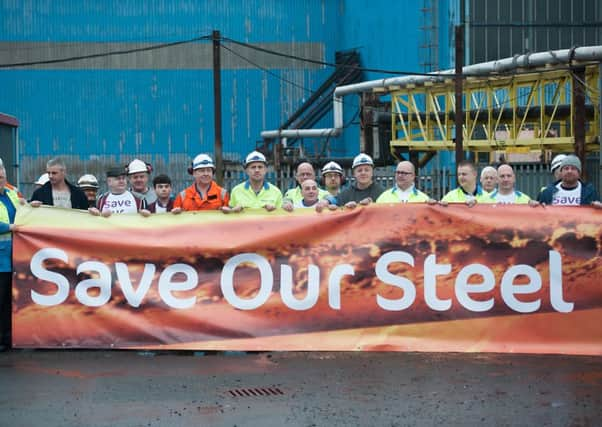Jeff Salway: Shareholders set to count pensions cost


The pressure on company pension deficits is about to feed through to ordinary investors as dividend payments come under threat.
FTSE 100 manufacturer Carclo this week said its October dividend payment to shareholders is now unlikely to go ahead, in a move that other large firms are expected to follow.
Advertisement
Hide AdAdvertisement
Hide AdThe warning comes just weeks after a study by actuarial consultants Lane Clark & Peacock found that while FTSE 100 companies paid out £71.8 billion to shareholders last year, they paid just £13.3 billion into their defined benefit (DB, or final salary) schemes. It said companies with large pension deficits could face regulatory action if they continued paying dividends.
The spotlight has returned to DB scheme funding in recent months following the crises at BHS and Tata Steel. In its report on the demise of BHS the work and pensions select committee warned that the future of DB schemes was perhaps “the greatest challenge facing longstanding British businesses”.
The outlook darkened following the EU referendum and the new round of quantitative easing subsequently announced by the Bank of England, which drove down the gilt yields used by schemes to calculate how much they need to meet future liabilities.
The impact of the referendum on scheme funding was cited by Carclo as one of the reasons why it may not be able to pay the dividend expected by shareholders next month.
Other company dividends are also under threat, said Hazel Brown, pensions director at Edinburgh-based Carbon Financial Partners.
“We have already seen one company scrap a dividend in favour of addressing its pension scheme deficit. It is likely that more will feel the pressure to follow suit as scheme deficits grow.”
Her warning was echoed by Tom McPhail, head of retirement policy at Hargreaves Lansdown.
“We’re likely to see more of this kind of announcement in coming months, unless there is sharp pick up in bond yields,” said McPhail.
Advertisement
Hide AdAdvertisement
Hide Ad“Current monetary policy may have kept the economy going but it is killing pension schemes, with disastrous consequences both for any employers sponsoring a final salary scheme and for any individuals looking to buy an annuity. “
The prospect of dividend cuts was raised in July by Capita Asset Services, which said underlying dividend payments fell in the second quarter of 2016. Barclays, Anglo-American, Glencore and Standard Chartered are among the FTSE firms to have reduced dividend payments this year, while Lloyd Banking Group has indicated that it may do likewise.
With dividend cover – the ratio of profits to dividends – at “very low levels”, according to Capita, further pressure on scheme funding could give companies no option but to scrap dividends over the coming months.
That would be a significant blow for long-term investors such as pension savers. Not only do many people rely on the regular income supplied by dividend payments, but reinvested dividends are also one of the biggest drivers of long-term investment growth.
“This will have greatest impact on those who chase yield and rely on a small number of company shares to generate the dividend payments they need to meet their expenditure,” said Brown.
The best bet for investors is therefore to diversify across a wider selection of assets and invest through collective funds, rather than depend on individual companies. Investment trusts are a particularly reliable outlet, due to their ability to keep up to 15 per cent of annual earnings in reserve to ensure they can continue paying dividends during the leaner times.
Brown also suggests investing on a “total return” basis.
“This means that the ‘income’ you need is produced through a combination of natural income, such as interest payments or dividends, and encashment of units within the diversified investment portfolio,” she explained,
“This approach is also very tax-efficient as you can utilise your annual capital gains tax allowance to withdraw funds efficiently and pay very little tax.”
Advertisement
Hide AdAdvertisement
Hide AdThe good news for pension investors in particular is that reductions in dividends should be relatively temporary.
“Investors should focus on the long-term, as even if companies are forced to cut their dividends for one or two years, to address their pension deficit, it is likely that this will only be a short-term problem with many FTSE 100 companies paying more out in dividends in one year than the total deficit on their pension scheme,” said Brown.